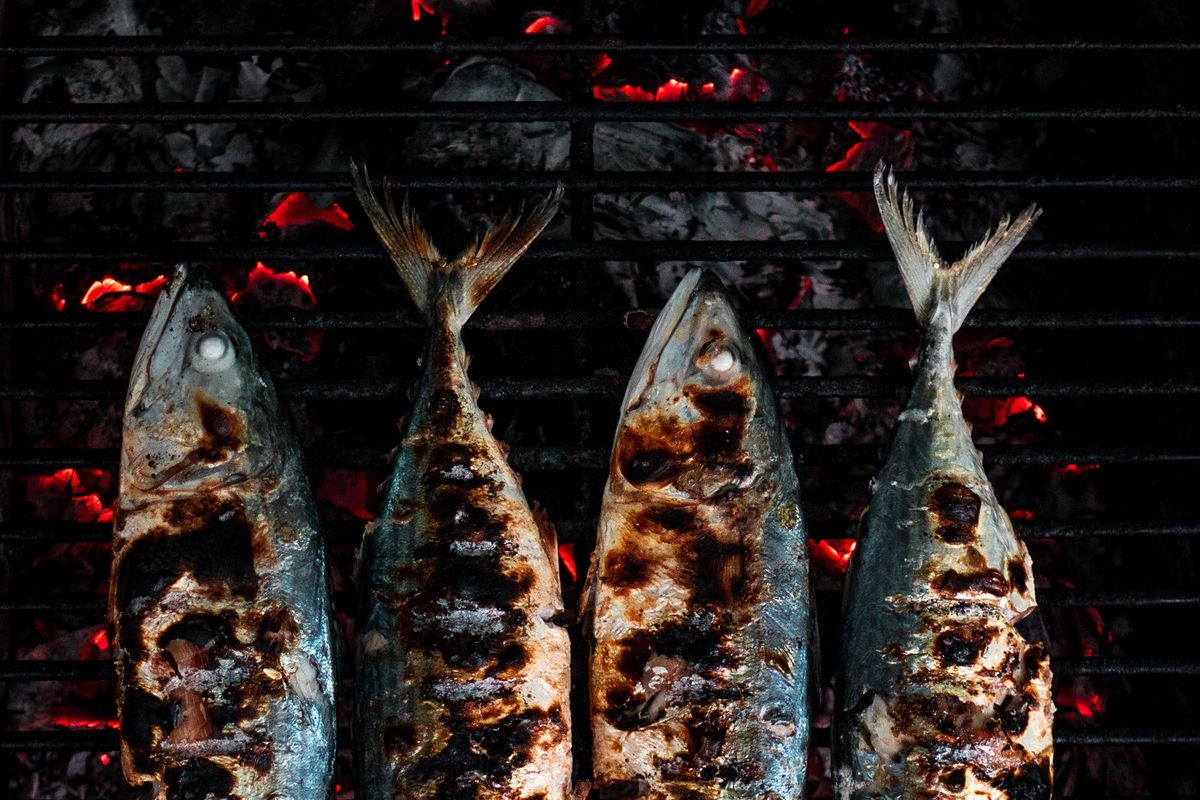Stoking fear about immigrants for political gain is nothing new, but a particularly heinous wave of fear-mongering over Haitian immigrants in Ohio has prompted one grieving family to speak out in a powerful way.
The parents of 11-year-old Aiden Clark, who was killed in a school bus accident in August of 2023, stood together at the podium at a Springfield City Commission meeting on September 10, 2024, begging people to stop invoking their son's name to spread hate. The driver of the minivan, 36-year-old Haitian immigrant Hermanio Joseph, crossed the centerline, colliding with the school bus carrying Aiden and around 50 other students and causing the crash. Aiden was killed and around 20 other students were injured in the accident.
Aiden Clark's father says he wasn't murdered
Along with spreading unfounded accusations of Haitian immigrants in Springfield, Ohio, stealing and eating pets, some Republican politicians have used Aiden's death to support anti-immigrant rhetoric. Even vice presidential candidate JD Vance posted on X that "a child was murdered by a Haitian migrant," appearing to refer to the accident that killed Aiden.
"My son, Aiden Clark, was not murdered," Aiden's father, Nathan Clark, said at the meeting. "He was accidentally killed by an immigrant from Haiti. This tragedy is felt all over this community, this state and even the nation. But don’t spin this towards hate."
Clark didn't mince words sharing his feelings about how "reprehensible" it is that people would use his son's death as "a political tool."
"You know, I wish that my son, Aiden Clark, was killed by a 60-year-old white man. I bet you never thought anyone would ever say something so blunt. But if that guy killed my 11-year-old son, the incessant group of hate-spewing people would leave us alone," Clark said.
"The last thing that we need is to have the worst day of our lives violently and constantly shoved in our faces. But even that’s not good enough for them," he continued. "They take it one step further. They make it seem as though our wonderful Aiden appreciates your hate. That we should follow their hate. And look what you’ve done to us. We have to get up here and beg them to stop."
Nathan clark asks people to "live like Aiden"
Clark pointed to specific politicians who have invoked his son's name "for political gain" and called for such rhetoric to end.
"This needs to stop now," he said. "They can vomit all the hate they want about illegal immigrants, the border crisis, and even untrue claims about fluffy pets being ravaged and eaten by community members. However, they are not allowed, nor have they ever been allowed, to mention Aiden Clark from Springfield, Ohio. I will listen to them one more time to hear their apologies."
Clark said that Aiden "researched different cultures to better appreciate and understand people he interacted with." He said he told his son he would try to make a difference in his honor and invited people to "live like Aiden."
"In order to live like Aiden, you need to accept everyone," he said. "Choose to shine. Make the difference. Lead the way and be the inspiration. What many people in this community and state and nation are doing is the opposite of what you should be doing."
Springfield, Ohio, has seen an influx of Haitian immigrants over the past several years, with approximately 15,000 Haitians making their way to work in the struggling industrial town of nearly 60,000. The swift population growth has come with growing pains including rising rents due to increased demand and an increase in welfare and federal assistance. But contrary to the fear-mongering rhetoric, violent crime and property crime have not increased, according to Reuters.
Others in Springfield speak out against hate for Haitian migrants
The Clarks are not the only Springfield residents to come to the defense of Haitian immigrants in the wake of hateful allegations about them. Springfield metal factory owner Jamie McGregor told PBS NewsHour that he has hired 30 Haitians, about 10% of his workforce, and he wished he had 30 more.
"Our Haitian associates come to work every day," McGregor said. "They don't have a drug problem. They'll stay at their machine, they'll achieve their numbers. They are here to work."
The United Farm Workers labor union also spoke out about the baseless, disgusting allegations against Haitian migrant workers in a post on X.
"We organize with Haitian-origin farm workers in NY. They’re as American as the apple pie their work makes possible, but right wing racists are spreading dehumanizing lies. Haitians are not eating pets. They’re feeding America. The anti-Haitian bigotry we’re seeing is repulsive," the union wrote. "(Cannot believe this is something we need to say.)" they added.
And yet, the rumors about the Haitian population in Springfield persist in right-wing circles on social media.To be extra clear, a spokesperson for the Springfield police issued a statement saying, "In response to recent rumors alleging criminal activity by the immigrant population in our city, we wish to clarify that there have been no credible reports or specific claims of pets being harmed, injured or abused by individuals within the immigrant community."
Unfortunately, using fear and prejudice against immigrants—or anyone easily deemed an "other"—has proven for decades to be an effective political strategy. Fueling our most primal instincts of self-preservation and fear of the unknown is the playbook dictators and autocrats have used time and again to rise to power and successfully commit atrocities. Especially when coupled with economic anxiety and times of uncertainty, scapegoating immigrants works. It may be an unjust and hateful strategy, but it works.
The more voices like Nathan Clark and Jamie McGregor and the United Farm Workers we have to counter the purposeful fear-mongering about specific populations, the better. There are legitimate conversations to be had about managing immigration and ensuring migration is handled in a sustainable way, but equating a car accident with murder and claiming without evidence that people are eating people's pets are not it.





 TikTok · AnAmericanInLondon
TikTok · AnAmericanInLondon traveling lauren conrad GIF by The Hills
traveling lauren conrad GIF by The Hills Saludo Hello GIF by María Grande
Saludo Hello GIF by María Grande Canadian Flag GIF by Pudgy Penguins
Canadian Flag GIF by Pudgy Penguins English Flag GIF
English Flag GIF a hand holding a red button that says i vote
Photo by
a hand holding a red button that says i vote
Photo by  polling station poster on clear glass door
Photo by
polling station poster on clear glass door
Photo by  red and blue building illustration
Photo by
red and blue building illustration
Photo by  Vote Voting GIF by The Drew Barrymore Show
Vote Voting GIF by The Drew Barrymore Show



